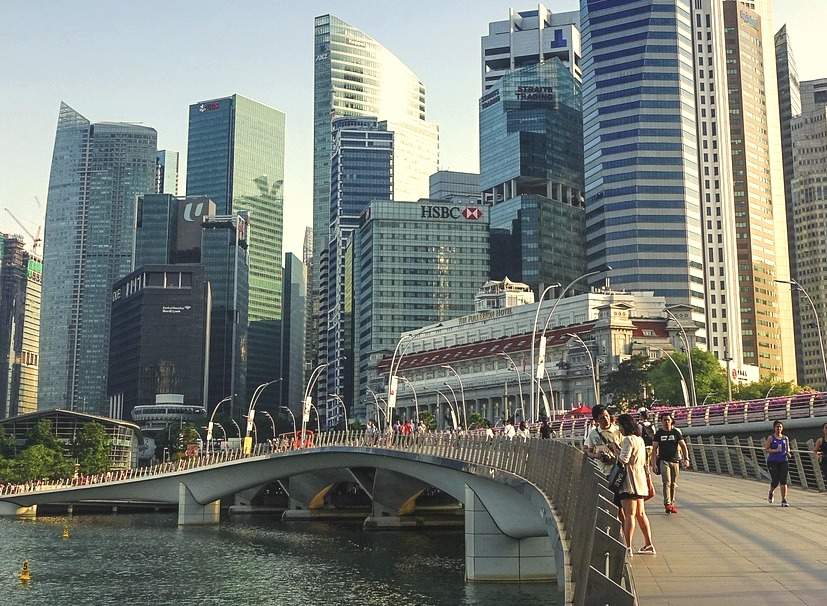-
Advocacy Theme
-
Tags
- Abortion
- Adoption
- Caregiving
- CEDAW
- Disability
- Domestic Violence
- Domestic Workers
- Harassment
- Healthcare
- Housing
- International/Regional Work
- Maintenance
- Media
- Migrant Spouses
- Migrant Workers
- Muslim Law
- National budget
- Parental Leave
- Parenthood
- Polygamy
- Population
- Race and religion
- Sexual Violence
- Sexuality Education
- Single Parents
- Social Support
- Sterilisation
- Women's Charter
AWARE welcomes the White Paper on Singapore Women’s Development, identifies “missed opportunities” that deserve more attention
March 29th, 2022 | Children and Young People, Employment and Labour Rights, Migration and Trafficking, News, Older People and Caregiving, Press Release, Workplace Harassment

This post was originally published as a press release on 29 March 2022.
29 March 2022 – Increased financial support for caregivers to the elderly. An anti-discrimination law prohibiting both workplace harassment and further retaliation against affected parties. A new set of Tripartite Guidelines on Flexible Work Arrangements (FWA). More comprehensive education on gender roles and stereotypes in schools. The expansion of the National Anti-Violence Helpline service to assist victim-survivors of sexual violence.
These are some of the measures that gender-equality organisation AWARE celebrated on Monday, 28 March, as the government submitted its White Paper on Singapore Women’s Development to Parliament.
For one, AWARE applauded the promise of guidance and training for SMEs to put in place proper grievance handling processes and workplace harassment policies. Specific measures to prevent retaliation—the prospect of which is a major factor in under-reporting of harassment—also demonstrate that policy-makers have been attentive to survivors’ needs.
“We’re happy to see the strategy to establish more positive norms in workplaces via legislation,” said AWARE Executive Director Corinna Lim. “The government has stated that legislation is not a panacea for all workplace ills; certainly discriminatory and harassing behaviours are underpinned by entrenched biases that need to be unlearned. However, the new law should make for both an effective deterrent and a strong signal to all of society that Singapore must be led by fairness and inclusion.”
The enhancement of Home Caregiving Grant, the monthly quantum of which will be raised from $200 to up to $400 depending on household income, will help alleviate care-related expenses, noted Ms Lim. “The government’s recognition of the financial cost of caregiving is a significant policy shift. Given the outpouring of caregivers’ voices in recent years calling for more financial support, including in AWARE’s own 2019 ‘Make Care Count’ report, this is a timely announcement that should make a material difference to many women’s lives.”
“We wholeheartedly agree with the White Paper’s emphasis on dismantling gendered stereotypes about care,” added Ms Lim. “On that note, we were hoping that this would herald a tangible increase in paternity leave—ideally, to equalise it with maternity leave—not simply more encouragement and reminders from HR. And to better assist eldercarers, we were hoping to see paid eldercare leave extended to working caregivers, no matter their gender.”
The group sought clarification on other policy announcements as well. For example, will new legislation to tackle workplace discrimination and harassment also include means to keep employers accountable for harassment that occurs under their purview? Will the Tripartite Guidelines on FWAs explain the grounds upon which employers must “fairly” consider FWA requests, and take into account jobs for which FWAs are not appropriate (possibly providing alternative benefits such as eldercare leave)? Will the revised Nurturing Early Learners framework to teach safety to preschoolers be in line with UNESCO guidelines for that age group, given that the existing Character and Citizenship Education does not adhere to UNESCO’s emphasis on consent education? Why does the new policy allowing elective egg freezing for women between 21 and 35 years of age only permit legally married couples to use said eggs for procreation?
In July 2021, AWARE contributed a 242-page omnibus report, titled “An Omnibus on Gender Equality”, towards the government’s review of gender equality. The report comprised 88 of the group’s collected recommendations on issues faced by women over their life course. That same month, AWARE also released a series of seven “policy wishlists” produced in collaboration with 191 members of the public. Under the banner “Reimagining Equality”, the seven wishlists covered issues faced by single parents; migrant spouses; victims of workplace harassment and bullying; victims of workplace discrimination; students at Institutes of Higher Learning; sexuality education stakeholders; and men.
Ms Lim observed that the above reports covered a broader demographic of women in Singapore than the White Paper has done. “Though it brings promise for some groups of women in Singapore, the White Paper makes almost no mention of other communities who face their own sets of challenges, such as migrant domestic workers, migrant spouses, religious and ethnic minorities, and LBT [lesbian, bisexual and transgender] women. These absences are puzzling, seeing that those women are valued members of society who contribute greatly to Singapore. Advancing gender equality means removing barriers for all individuals, not just some.”
AWARE’s Omnibus Report for example included suggestions to tackle discrimination and violence against LGBTQ persons. It also suggested better protections for domestic workers, such as stronger regulation of work hours and clearly articulated contracts; and the provision of greater security, subsidies and work eligibility to all migrant spouses via the Long-Term Visit Pass Plus scheme.
“This White Paper is a historic move towards equality in Singapore. Yet there are notable missed opportunities that would have set us on an accelerated roadmap to progress—for the whole of society, not just ‘women’ as the Paper’s title inadvertently suggests,” said Ms Lim. “Instead of hewing society along conventional lines, our policies should better reflect Singapore’s diverse collective of lives and experiences. We hope that some additional measures will be ushered in when the government conducts its mid-point review in 2027.”



